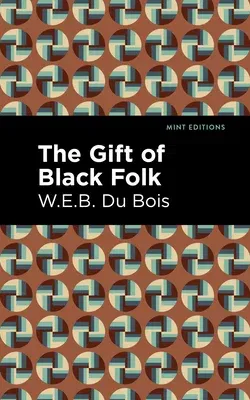The Gift of Black Folk (1924) is a book of essays by W. E. B. Du Bois.
Written while the author was using his role at The Crisis, the
official magazine of the NAACP, to publish emerging Black artists of the
Harlem Renaissance, The Gift of Black Folk is a purposeful work of
history which revises the narrative of European and British influence
and emphasizes the outsized role of African Americans in building the
nation and establishing its definitive culture. "[Despite] slavery,
war and caste, and despite our present Negro problem, the American Negro
is and has been a distinct asset to this country and has brought a
contribution without which America could not have been." This thesis
could not be stated clearly enough. Recognizing, in the words of Dr.
King, "that the keystone in the arch of oppression was the myth of
inferiority," Du Bois set out to revise American history to properly
tell the story of his people. As he does in his magnum opus Black
Reconstruction in America (1935), Du Bois recognizes that the failures
of the Reconstruction era were due in large part to an unwillingness to
accept Black people, enslaved or free, as human. In these essays, he
emphasizes the role of African Americans as workers, soldiers, and
explorers, situates them in the movement for women's rights, and
celebrates their contribution to the arts and culture of the nation.
With a beautifully designed cover and professionally typeset manuscript,
this edition of W. E. B. Du Bois' The Gift of Black Folk is a classic
of African American literature reimagined for modern readers.


